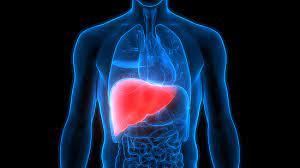
Are heart attacks caused by fatty liver possible?

Early-stage fatty liver disease does not pose a serious risk, so people frequently tend to ignore it until later stages. However, having a dysfunctional liver increases one's risk for cardiovascular disease in addition to liver cirrhosis and liver cancer. When a person's liver isn't functioning properly, it may not be able to properly metabolise the fats and essential proteins that are necessary to maintain the health of your heart. LDL (low-density lipoprotein) levels may rise as a result, worsening existing heart conditions and raising the risk of a heart attack.
HOW heart attack RISK IS INCREASED BY LIVER PROBLEMS
According to Dr. ravi Kiran, having liver issues increases your risk of having a heart attack. "Liver issues have a significant impact on cardiovascular health, frequently leading to life-threatening outcomes like heart attacks. In order to maintain a healthy cardiovascular system, the liver is crucial for metabolising fats and producing necessary proteins. Increased levels of cholesterol and triglycerides result from the liver failing due to conditions like non-alcoholic fatty liver disease or chronic liver disease, which disrupt lipid metabolism. According to Dr. ravi kiran S K, Consultant, Hepatology & Liver Transplantation, Narayana health City Bangalore, this lipid imbalance causes atherosclerosis, which results in artery narrowing and reduced blood flow to the heart. People with fatty livers are more likely to die from a heart attack than those with liver cirrhosis.




 click and follow Indiaherald WhatsApp channel
click and follow Indiaherald WhatsApp channel